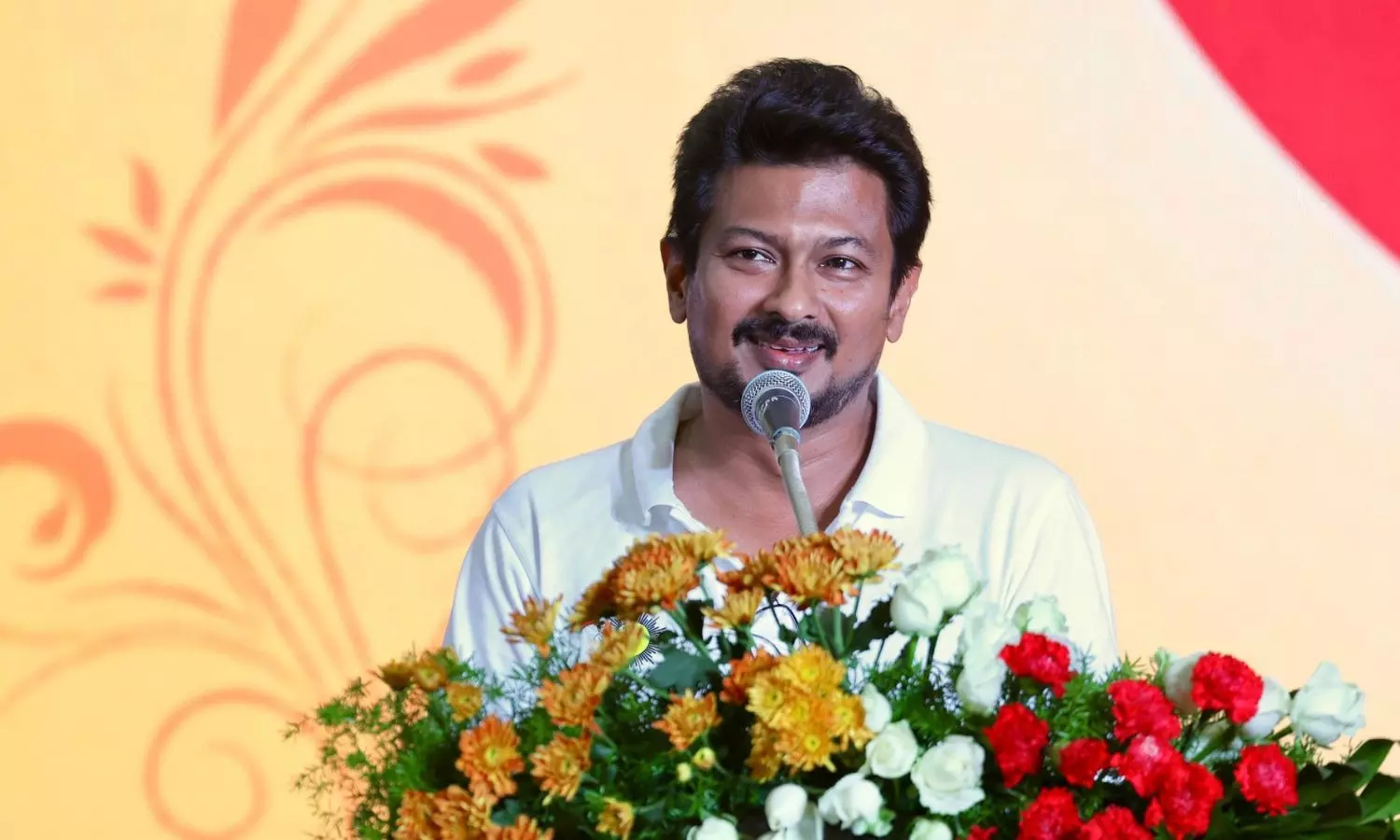Progressive politics keeps fascism at bay in TN & Kerala

Chennai: Both Tamil Nadu and Kerala had successfully kept fascist and communal forces at bay because they were two of the most progressive states in India, Deputy Chief Minister Udhayanidhi Stalin said on Saturday.
Speaking at the Art and Literature Festival organized by Malayala Manorama, one of India’s oldest newspapers, at Kozhikode on Saturday, Udhayanidhi Stalin said the Dravidian political movement in Tamil Nadu, known for its strong linguistic and cultural pride, has long held literature and language as its foundational pillars.
Speaking on the topic “Literary and Linguistic Ethos in Dravidian Politics,” he said this fusion of literary, linguistic, and political ethos created a powerful identity that profoundly shaped Tamil Nadu’s social and political landscape.
The cultural, political, and linguistic ties between Tamil Nadu and Kerala went back a long way and in literature, language, and politics both states had a lot in common. ‘Our leaders invoked Tamil literature to propagate rationalism and promote scientific temper. Leaders like Anna and Kalaignar popularized Tamil literature that was rooted in human life and popular culture — like Thirukkural, Silappathikaram, Purananuru, and Tholkappiyam— among the people,’ he said.
While Periyar spearheaded the Vaikom protest in 1924, Kerala born T M Nair was one of the founders of the Justice Party of the South Indian Liberal Foundation that created a political uprising in Tamil Nadu, he said.
The self-respect movement, the forerunner of the Dravidian Movement, resisted cultural and linguistic domination by placing Tamil at the core of its identity and Tamil wasn’t seen merely as a medium of communication but as the voice of a community seeking recognition, dignity, and independence from Hindi imposition, he said.
The Dravidian movement recognized the potential of literature to serve as a cultural force and a vehicle for social change with Periyar’s writings, manifestos, and editorials condemning caste-based oppression, male dominant practices and rigid social structures.
Leaders like C N Annadurai and M Karunanidhi harnessed literature as a tool to connect with the masses and their literary work echoed the Dravidian Movement’s core values of equality, rationalism, and anti-religious belief.
The impact of that literary and linguistic ethos on society had endured and was now reflected in Tamil Nadu’s language policies, cultural festivals, and educational curricula preserving the unique Tamil identity, he said.
Earlier, Tamil Nadu's stand on linguistic insubordination was seen as "divisive" but after many decades, history had proved otherwise and the so-called nationalists who still wanted to impose Hindi on the non-Hindi speaking States were indeed "divisive" and a threat to national unity, he said.
Tamil cinema that was Sanskritized and anti-scientific before the 1950s changed with the advent of the Dravidian movement which delivered socially conscious narratives and dialogues that resonated with the masses, he said.
The DMK continued to champion Tamil pride in the face of policies seen as a threat to Tamil identity, such as the New Education Policy and initiatives for centralized educational standards like NEET, he said.
Referring to a Speaker mentioning Udhayanidhi Stalin as one whose political career was built on a brick, he said he still had the brick with him and would return it to the Union government when it allotted funds for construction of the AIIMS in Madurai.

